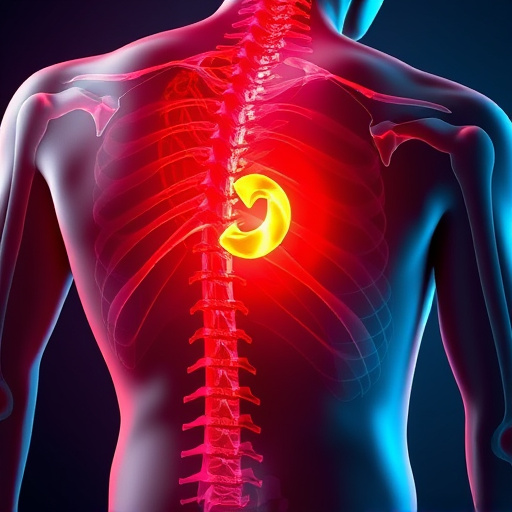Family support is crucial for effective chronic pain management, impacting well-being and recovery through emotional strength, practical assistance, and open communication about symptoms and treatments like shockwave therapy or spinal adjustments. Family involvement enhances coping strategies, treatment adherence, and outcomes by providing a sense of belonging and community, especially when dealing with conditions like sciatica. Healthcare providers should educate both patients and families to maximize this support, strengthening familial bonds and aligning management strategies for better chronic pain outcomes.
Family support plays a pivotal role in chronic pain management, significantly impacting patients’ overall well-being and treatment outcomes. This article delves into the intricate relationship between family dynamics and chronic pain, exploring how social networks can either exacerbate or alleviate suffering. We discuss effective strategies to enhance family support, emphasizing their crucial role in managing this pervasive condition. By understanding these connections, healthcare providers and caregivers can foster better chronic pain management plans tailored to each individual’s unique context.
- The Impact of Family Support on Chronic Pain
- Understanding the Connection: Pain and Social Networks
- Strategies for Enhancing Family Support in Management
The Impact of Family Support on Chronic Pain

Family support plays a pivotal role in chronic pain management, significantly influencing an individual’s overall well-being and recovery journey. When family members actively engage in understanding and supporting someone with chronic pain, it can lead to better coping strategies and improved quality of life. This support network provides emotional strength, practical assistance, and a sense of belonging, all of which are crucial for effective chronic pain management.
Having a supportive family environment fosters open communication about pain symptoms, treatment options, and the challenges associated with chronic conditions like herniated discs or pinched nerves, requiring rehab services. This collective knowledge enables everyone involved to make informed decisions, adhere to treatment plans, and provide appropriate care, ultimately contributing to positive outcomes in managing chronic pain.
Understanding the Connection: Pain and Social Networks

Chronic pain is a complex condition that doesn’t just affect an individual; it permeates their social network. Family and friends play a pivotal role in chronic pain management, as they provide emotional support, practical assistance, and a sense of belonging, all of which are crucial for coping with persistent pain. Understanding this connection between pain and social networks is essential to developing effective strategies for managing chronic pain.
In many cases, family members become caregivers, offering neck pain relief or joint pain relief by helping with daily tasks, providing transportation, and ensuring patients adhere to their treatment plans. This informal care can significantly impact the patient’s ability to manage their musculoskeletal injuries effectively. Moreover, social support networks influence pain perception and coping mechanisms, potentially exacerbating or alleviating symptoms. Thus, family involvement in chronic pain management is not just beneficial but often necessary for achieving positive outcomes.
Strategies for Enhancing Family Support in Management

Family support plays a pivotal role in chronic pain management, influencing patients’ coping strategies and treatment adherence. To enhance family support, several strategies can be implemented. Firstly, education is key; informing both patients and their families about chronic pain conditions, available treatments like shockwave therapy for pain or spinal adjustment, and self-management techniques empowers them to actively participate in care. Encouraging open communication within the family unit fosters a supportive environment where individuals can express fears, hopes, and concerns related to the patient’s chronic pain journey.
Additionally, involving families in decision-making processes regarding treatment plans, including sciatica treatment options, promotes a sense of ownership and commitment. This collaborative approach not only strengthens family bonds but also ensures that the chosen management strategies align with the patient’s preferences and needs, ultimately improving adherence to care and enhancing chronic pain management outcomes.
Family support plays a pivotal role in chronic pain management, significantly impacting individuals’ ability to cope with and overcome persistent pain. By fostering strong social connections, family can enhance resilience, provide practical assistance, and offer emotional support, all of which are crucial for effective chronic pain management. Incorporating strategies to strengthen family dynamics, such as open communication, education, and structured activities, can lead to improved outcomes and enhanced quality of life for those navigating chronic pain.














